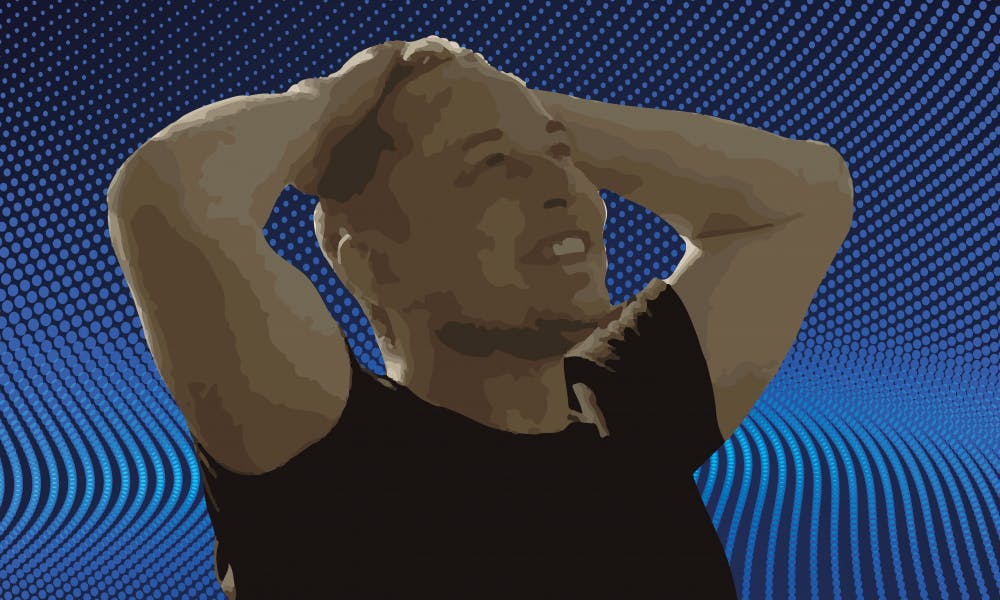
Elon Musk, the founder and CEO of both Tesla and SpaceX, is among the most notable Penn alumni; yet with publicity, inevitably comes scrutiny. Recent events have brought Musk’s character into question, highlighting specific personality traits that are often associated with the most successful entrepreneurs.
Entrepreneurs like Musk tend to have unique personalities that correlate to higher levels of creativity, energy, risk tolerance, and impulsivity. While Musk’s innovations have greatly contributed to an evolving society, some claim that he has flown too close to the sun.
Entrepreneurs like Musk don’t like to lose, and it is no secret that the Tesla, Inc. stock has been spiraling downward in 2018. March 2018 was the second-worst month for Tesla shares in its history as the stock price fell 22.4 percent compared with a 2.69 percent decline in the S&P 500 during the same period. The recall of 123,000 Model S vehicles and the company’s inability to reach production goals for Model 3 has plagued Tesla’s value.
In a rash Twitter post by Musk on Aug. 7, he declared that he was ready to take Tesla private.
This comment virtually guarantees that share price will skyrocket as traders try to get rich quick. Buying out shareholders at $420 would give them a 20 percent premium over the stock price after its second-quarter earnings. Not to mention that Musk will gain more control over his company.
This is not the way that multi-billion dollar leveraged buyouts usually occur. Most companies would line up banks, private equity firms, and other investors to agree to finance the purchase in advance. Musk, on the other hand, spontaneously sent out a one-liner on social media. Tesla directors claimed they were blindsided by Musk’s announcement.
With extreme success comes extreme stress. Musk’s tweet demonstrates a rash, potentially inaccurate, and poorly thought out decision that might be explained psychologically. In 2017, Musk released a series of tweets that bring his judgement into question.
Tesla’s board members have been urging Musk to control his tweets but have yet to be successful. Still, they provide us interesting insight into the mind of a Wharton grad.
Musk’s compulsive desire for grand success impacts his ability to remain composed in certain situations. This past month, when a Thai soccer team was trapped in a cave for 18 days, Musk was determined to save the boys using his “kid-sized submarine.” When that didn’t happen — but everyone was still rescued — Musk accused one of the actual heroes of being a “pedo.” He let his robust confidence get the best of him by pouting and making false accusations of pedophelia.
Like many Penn students, Musk is hyper-competitive and accustomed to winning. When faced with a loss, we tend to impulsively take matters into our own hands in an attempt to recover, just as Musk did with his most recent Twitter escapade.
Regardless of individual personality type, virtually no Penn student has been unaffected by our campus’ competitive atmosphere. Most people come to Penn having been the top of their class and consistently praised for their accomplishments. Connecting with your first Penn acquaintance on LinkedIn is the first step of a four-year journey where your own accomplishments are valued based on comparison with others'.
Maybe Elon Musk’s impulsivity, over-confidence, and questionable decision-making can be attributed to the notorious Wharton culture. Despite being one of the most accomplished Penn alumni, having revolutionized space rockets, electric cars, and batteries, Musk’s Twitter feed has given us insight into his dangerous ego. Check out @elonmusk for his latest posts on “short shorts coming soon to Tesla merch.”
LEILA ASHTARYEH is a Wharton sophomore from Toronto. Her email address is leilaash@wharton.upenn.edu
The Daily Pennsylvanian is an independent, student-run newspaper. Please consider making a donation to support the coverage that shapes the University. Your generosity ensures a future of strong journalism at Penn.
Donate



